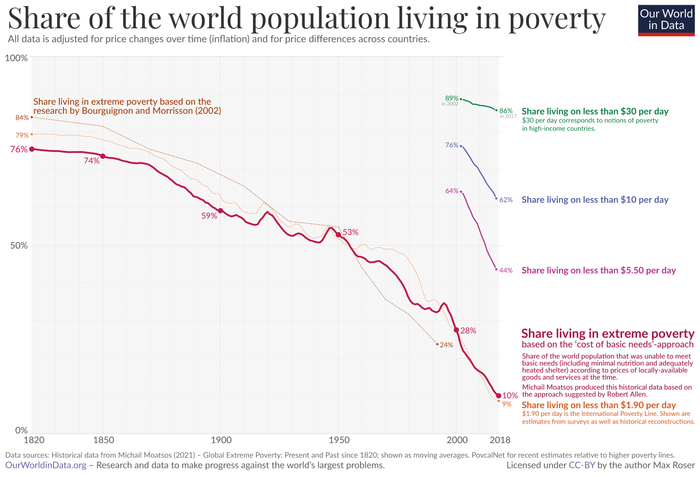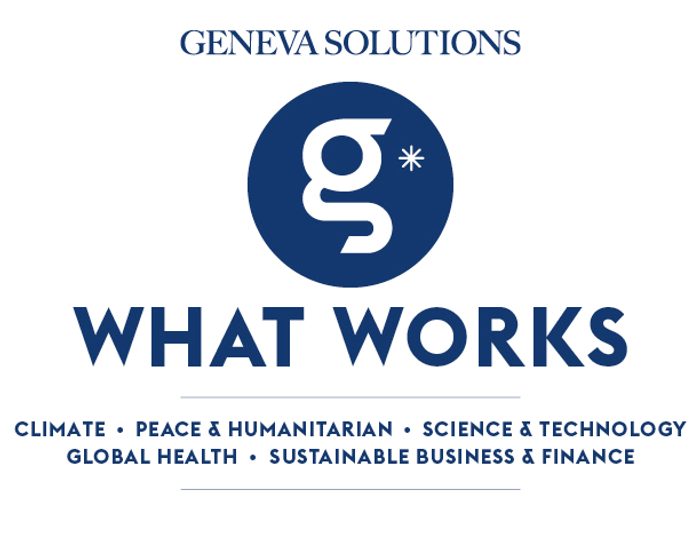Good morning, this is Kasmira, and today we're looking at why Swiss mainstream fintech is being slow to embrace the transition to sustainability.
In other news, when it comes to ESG investing, Swiss banks are not always finding the same enthusiasm among their private clients as with institutional investors.
Plus, how the vaccines patent waiver spat is helping to put the World Trade Organization back on the map. |
|
Sustainable business and finance news
|
|

A fragment of Amazon rainforest next to soy fields in Belterra, Para state, Brazil. (Keystone/AP Photo/Leo Correa)
|
|
💉 Vaccines a way to put WTO back on the map.
A global spat over coronavirus vaccines is giving World Trade Organization director general Ngozi Okonjo-Iweala a rare opportunity to give her badly wounded organization a road back to relevance, say Politico writers in this analysis piece.
Politico (EN)
|
|
Here's what else is happening
|

(Credit: Max Roser/OurWorld in Data)
|
|
History of global poverty reduction has only just begun.
What is economic growth and why is it so important? Max Roser, economist and founder of Our World In Data sets out to answer this question by exploring different measures of growth, what these tell us about global poverty, and how people’s material living conditions have changed. He concludes with the chart above, which shows that whilst global poverty has decreased over the last two centuries, 62 per cent of the world population still live on less than $10 per day. Further economic growth is needed to lift more people out of poverty, he says: "Those who don’t see the importance of growth are not aware of the extent of global poverty. The production of many crucial goods and services has to increase if we want to end it."
Our World In Data (EN)
|
|
|
🎧 Financing pensions in a sustainable way: is it possible?
The hosts of this radio show travel to Geneva to explore the different financial practices – from investments, local currencies to pensions and international finance – that could encourage the ecological transition over the coming years. Guests include Caroline Schum, Nest manager for French-speaking Switzerland and Virginie van Doorn, senior ESG analyst and project manager for the consultancy firm Conser.
RTS (FR)
|
|
|
GS news is a new media project covering the world of international cooperation and development. Don’t hesitate to forward our newsletter!
Have a good day!
|

|
|
Avenue du Bouchet 2
1209 Genève
Suisse
|
|
|
|









